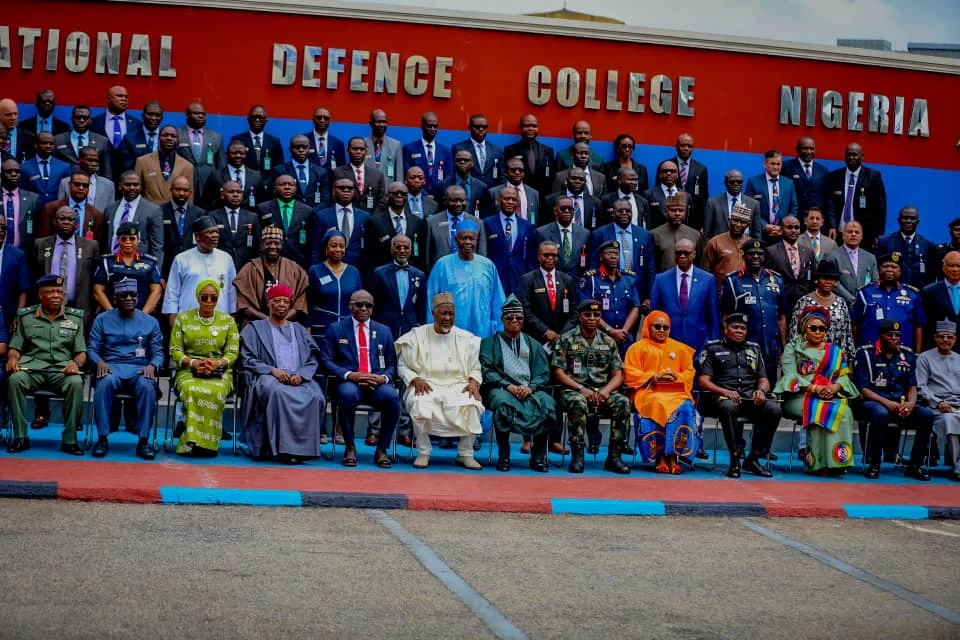By Sumaila Ogbaje
The Minister of Defence, Alhaji Muhammed Badaru, has advocated human-centred security approaches by addressing the root causes of insecurity, including unemployment, poverty, and social exclusion.
Badaru made the call at the opening of the 14th National Security Seminar organised by the Alumni Association of the National Defence College (AANDEC), on Monday in Abuja.
The seminar with the theme, “Combating Hunger and Poverty for Sustainable Peace and Development in Nigeria,” was organised in collaboration with Office of the National Security Adviser (ONSA) and National Defence College (NDC).
The minister pointed out that in a world where security challenges know no borders, there was a need for collective action in addressing the nation’s security concerns.
He called for a “whole-of-society” approach to tackle pressing issues like hunger, poverty, and violence.
He commended President Bola Tinubu’s commitment to improving the quality of life for all Nigerians and praised the Armed Forces and security agencies for their bravery and innovation in responding to security threats.
According to him, the seminar served as a platform for stakeholders to deliberate on sustainable solutions, foster dialogue, and promote inclusive approaches to national security.
The minister expressed his confidence in the collective efforts of Nigerians to build a secure and prosperous future where peace and stability reign supreme.
“May our collective efforts continue to strengthen our path towards unity, resilience, and sustainable national security,” he said.
In his remarks, the National Security Adviser (NSA), Malam Nuhu Ribadu, said that national security was a collective responsibility, adding that it demands a multidimensional and collaborative approach.
Ribadu, represented by the Director, Defence Affairs at ONSA, Maj.-Gen. Peter Mala, said the year’s theme touched at the very heart of the national challenges.
According to him, hunger and poverty are not merely social concerns; they are catalysts for insecurity, crime, violence, and social disintegration.
“These issues form a vicious cycle — poverty leads to insecurity, and insecurity, in turn, deepens poverty.
“The Federal Government under President Tinubu has prioritised agricultural reforms, social investment programmes, and security sector interventions aimed at breaking this cycle.
“These efforts are visible through increased support for food security initiatives, enhanced law enforcement capacity, and infrastructure to support agricultural production and distribution,’’ he said.
Ribadu said his office had continued to coordinate both kinetic and non-kinetic efforts across the armed forces, intelligence services, security agencies, and relevant government and non-governmental actors.
According to him, in spite of the progress made, issues like unemployment, hunger, and youth disenfranchisement remain persistent and require deeper and long-term solutions.
He said the forum presents an excellent platform for collective introspection and the sharing of ideas towards tackling the dynamic and multifaceted challenges confronting the nation.
NSA commended the alumni association for their commitment to national development and bringing together thought leaders, security experts, policymakers, and citizens to chart a path forward. (NAN)(www.nannews.ng)
Edited by Yakubu Uba












